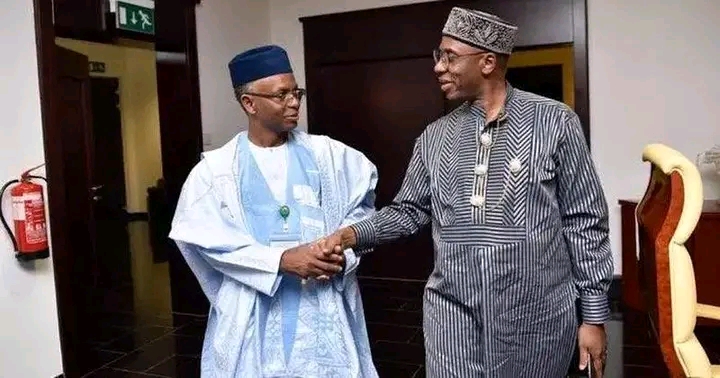News Analysis – By Abdul Lauya
In a deftly calculated political maneuver, the Nigeria National Coalition Group (NNCG), an elite consortium of disaffected political heavyweights, has made its boldest move yet: the formal application to the Independent National Electoral Commission (INEC) to register the All Democratic Alliance (ADA) as a new political party. With a roster comprising former Vice President Atiku Abubakar, ex-Kaduna State governor Nasir El-Rufai, former Rivers governor Rotimi Amaechi, and erstwhile Senate President David Mark, the coalition appears to be orchestrating what may well become the most audacious opposition realignment since the birth of the All Progressives Congress (APC) in 2013.
This latest attempt at constructing a so-called “Third Force” reignites an enduring ambition in Nigerian politics: to escape the polar binary of APC and PDP dominance. Historically, only a handful of such efforts have found success. The most enduring of them, the People’s Democratic Party, which emerged from the G-34 Movement during the twilight of military rule, was successful largely because it captured the mood of a nation fatigued by martial authoritarianism and desperate for civilian renewal. Similarly, the APC coalition, forged from disparate regional parties including the ACN, CPC, and ANPP, successfully dethroned the PDP in 2015 due to its strategic merger calculus and the galvanizing popularity of Muhammadu Buhari in the North.
Contrasted with these, recent third-force experiments such as the Coalition of United Political Parties (CUPP) or the Labour Party surge under Peter Obi in 2023, while briefly electrifying the polity, were undermined by lack of depth in structure, funding, or elite consensus. Obi’s campaign, though youth-driven and emotionally potent, did not command the requisite institutional machinery to seize power at the center.
The ADA coalition, however, departs from this tradition of political improvisation. Unlike fringe platforms, ADA is populated by political titans who have variously held power at the highest echelons of governance. Atiku brings national name recognition and vast political capital; El-Rufai is regarded as a strategic thinker with deep northern connections; Amaechi, though polarizing, remains an agile mobilizer across the South-South; David Mark offers institutional memory and cross-zonal appeal. In theory, they offer the ideal convergence of political intellect, electoral reach, and administrative experience. Yet therein lies the paradox: this strength may also be ADA’s Achilles heel.
The potential for ego collisions, historical rivalries, and ideological vagueness threatens to fracture the fragile unity being so meticulously curated. These are actors with long personal ambitions and political debts, some of which may be irreconcilable. Atiku has run for president six times and may resist pressure to step aside for a younger or more regionally strategic candidate. Amaechi and El-Rufai, recent APC stalwarts, may struggle to convince the electorate of their sincerity in challenging the very party they helped enthrone. And though David Mark projects statesmanship, his role appears more as a convening elder than a political combatant.
Yet their cause is not without merit. Mounting dissatisfaction with President Bola Tinubu’s administration, marked by spiraling inflation, Naira instability, fuel subsidy fallout, and rising insecurity, has created a dangerous vacuum in public confidence. Although Tinubu remains a political chessmaster with unmatched grassroots networks, loyal governors, and firm control of the APC’s machinery, the conditions that facilitated his improbable victory in 2023, elite fatigue with Buhari, North-South political bargaining, and his iron-willed campaign, may not be reproducible in 2027.
What ADA must urgently establish is not merely an oppositional identity, but an ideological alternative, one rooted in policy seriousness and mass mobilization. This demands more than the symbolism of coalition; it requires the architecture of a shadow government, with a cohesive policy team, regionally representative spokespeople, and tangible interventions in public discourse. Furthermore, ADA must court key demographic and political blocs presently alienated by Tinubu’s technocratic governance style: labour unions, youth groups, religious constituencies, and the increasingly influential Southern Middle Class. A strategic alliance with Peter Obi’s faction, or at least tacit support from the Obidient movement, may yet prove decisive.
Ultimately, ADA’s success will not depend solely on its roster of dramatis personae, but on its ability to present a credible narrative of national redemption, executed with surgical discipline and internal cohesion. The pathway to unseating Tinubu, an incumbent with the instincts of a tactician and the resilience of a street fighter, will demand nothing less than a coalition that is not merely anti-APC, but pro-Nigeria in philosophy, structure, and resolve.
It is too early to declare ADA the harbinger of Nigeria’s political reawakening. Yet for the first time in recent memory, the opposition appears neither aimless nor fragmented. If it consolidates its message, narrows its ambitions to a single presidential ticket, and builds a campaign rooted in governance credibility rather than recycled grievances, it may well defy precedent, and deliver a political upset in 2027 that rivals 2015 in consequence and scope.
For advert placement and inquiries, publication of press releases, and news coverages, please call: Phone: 08052898434 Email: editor@eyereporters.com, click here to view the advert rates.



